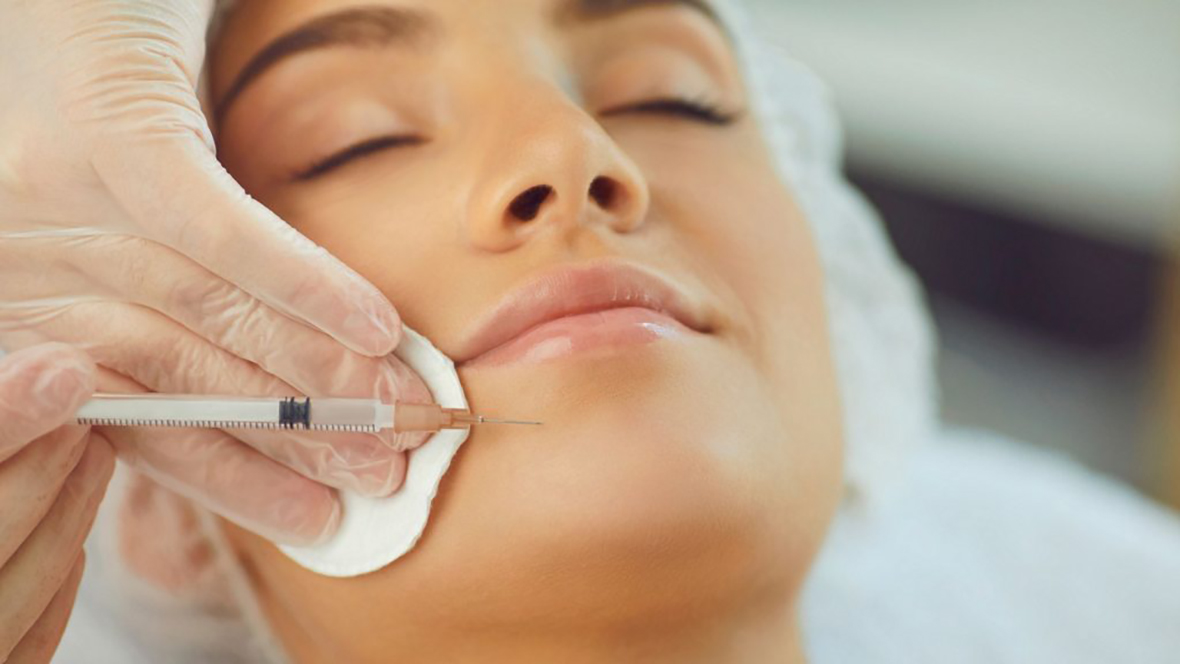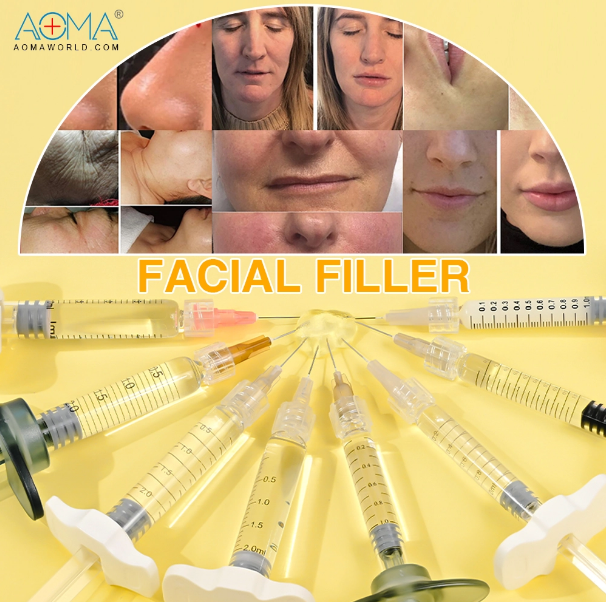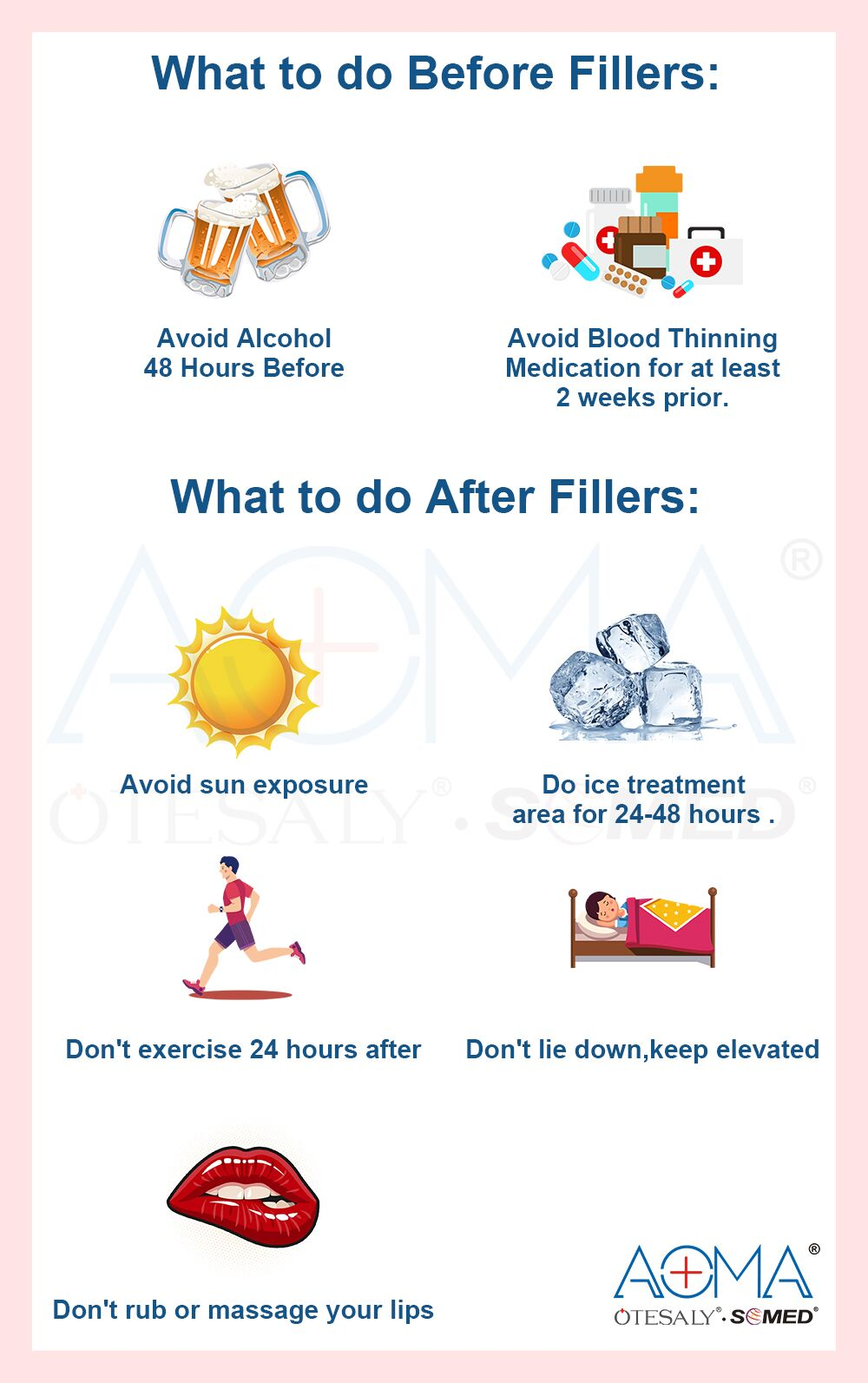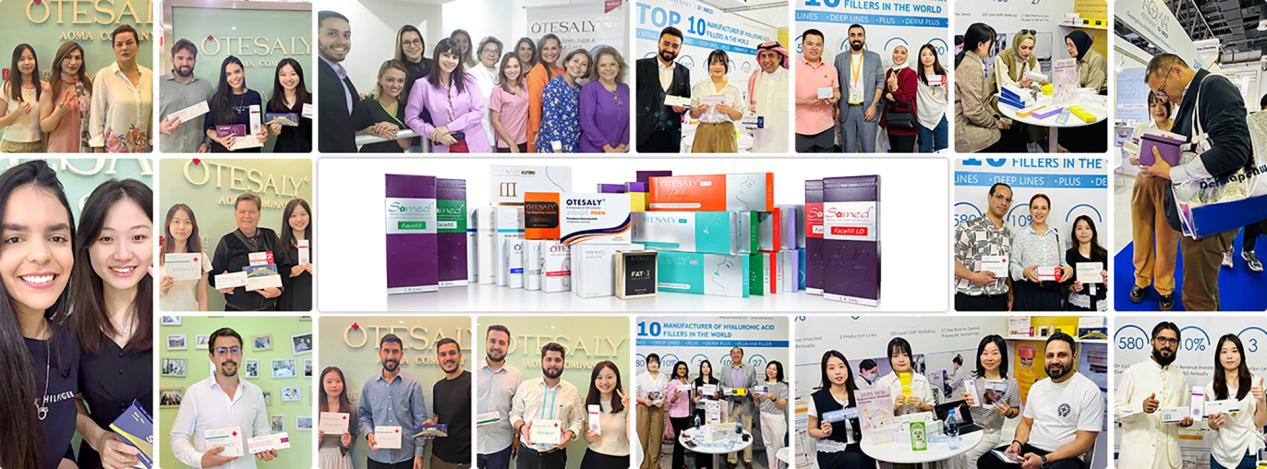Thinking about getting a facial filler? You should feel sure about your choice. Many people see real changes and feel happy after treatment. This is true when they know what to expect. Safety is very important, so always choose FDA or CE standard products like AOMA. You should also trust a licensed expert for the best results.
Key Takeaways
Pick FDA or CE standard fillers like AOMA for safety and quality. This means you get products that passed tough safety tests.
Always talk to a licensed injector before your treatment. Their skill is important for natural-looking results and your safety.
Follow aftercare steps closely to help your results. Good care lowers swelling and makes your fillers last longer.
Facial Filler Basics

Facial fillers are a common way to change your look without surgery. These cosmetic injectables can help bring back lost volume. They also smooth wrinkles and shape your face. You might use them to make your lips look fuller. They can lift your cheeks or soften lines near your mouth. Many people like these treatments because they are fast and simple.
AOMA's facial fillers are special because they use high-quality hyaluronic acid. They also meet strict FDA and CE rules. You can feel safe because experts trust these products.
How Fillers Work
Dermal fillers add volume under your skin. Most injectable fillers, like AOMA's, use hyaluronic acid. This ingredient pulls water to the area. It makes your skin look plump and moist. Hyaluronic acid can hold a lot of water. This keeps your skin looking fresh and full. Some dermal fillers also help your body make more collagen. Collagen helps your skin stay firm as time goes on.
Tip: Most dermal fillers show results right away, and the effects can last for months.
Types of Dermal Fillers
You have many choices for dermal fillers. Each type has different ingredients and lasts for different times. Here is a quick chart:
Type of Filler | Main Ingredient | Duration of Effect |
Hyaluronic Acid | Hyaluronic Acid | 6 to 18 months |
Calcium Hydroxyapatite | Calcium Hydroxyapatite | Up to 1 year |
Poly-L-lactic Acid | Poly-L-lactic Acid | Up to 2 years |
Polymethylmethacrylate | Polymethylmethacrylate | Up to 5 years |
Dermal fillers can help in many places:
Add volume to cheeks
Make lips look fuller
Smooth smile and marionette lines
Soften nasolabial folds
Shape jawlines, temples, and forehead
When you pick cosmetic injectables like AOMA's, you get a product made for your needs. These dermal fillers help you look good with little recovery time.
Are You a Good Candidate?
Medical History
Before getting a facial filler, think about your health. Your provider needs to know your medical history. This helps them see if dermal fillers are safe for you. Some health problems mean you should not get this treatment. Look at this table:
Contraindication | Not a contraindication |
Active infection | Autoimmune disease |
Allergy/hypersensitivity to the filler | Dermatomyositis/polymyositis |
Glabellar necrosis | Lupus erythematosus |
Allergy to lidocaine | Rheumatoid arthritis |
| Scleroderma |
| Immunosuppression |
If you have an active infection, do not get dermal fillers. If you are allergic to the filler, you should not get it. People with autoimmune diseases can usually get fillers. But do not get them during a flare-up. Your provider will ask about any new health changes or medicines. Some drugs, like steroids or immunosuppressants, can change your treatment. Always tell your provider about past cosmetic treatments. Also share allergies or bad reactions you have had.
Tip: Sharing your full medical history keeps you safe. It also helps you get the best results from your filler treatment.
Expectations
You may wonder what will happen after your filler treatment. Most people see changes right away. The final look takes a few weeks. Here is what you should know:
Aspect | Description |
Realistic Expectations | You will be happier if you expect natural changes, not a total makeover. |
Natural Enhancement | The best results look fresh and natural, not fake or stiff. |
Final Results | Swelling goes down in 2-4 weeks, so your true look appears after that. |
Realistic Goal Setting | Talk with your provider about what is possible for your age and face. |
Age-Appropriate Enhancement | You should look like a better version of yourself, not a different person. |
Dermal fillers can help you look less tired and more refreshed. They cannot make you look like someone else. If you set real goals, you will like your results more. Your provider will help you know what your treatment can do.
Getting Ready for Dermal Fillers
Consultation Tips
You should meet with your provider before getting a facial filler. This meeting helps you feel prepared and safe. Bring a list of your medicines and any allergies you have. Your provider will ask about your health and past treatments. You can ask questions to learn more about the treatment. Here are some good questions you can ask during your visit:
1. What are dermal fillers?
2. Are there different types of fillers?
3. Why would I want dermal fillers?
4. What's the difference between fillers and other injectables?
5. What happens during the treatment?
6. How long does a filler appointment take?
7. Are there side effects after treatment?
8. Is the treatment permanent?
9. Can I combine fillers with other cosmetic services?
10. Is it important to work with a dermatologist for fillers?
Tip: Write your questions down before your visit. This way, you will not forget anything important.
Steps Before Treatment
You can get better results by following some simple steps before your appointment. These steps help lower your chance of bruising and swelling:
Do not take blood-thinning medicine like Aspirin, Ibuprofen, or Advil for one week before your visit.
Stop taking supplements like fish oil, garlic, ginkgo, ginseng, and St. John's wort.
Wait at least one week after finishing antibiotics before getting fillers.
Do not drink alcohol or caffeine for 24 to 48 hours before your appointment.
Drink lots of water to stay hydrated.
Come to your appointment with a clean face and no makeup or skincare products.
Plan for some rest time after your treatment in case you have mild swelling or bruising.
Note: Always tell your provider about any allergies, medicines, or recent health changes. This helps keep you safe and gives you the best results.
During the Procedure
Injection Process
When you get to your appointment, your provider wants you to feel calm. First, you talk about what you want from the treatment. You will sit or lie down in a clean room. The provider marks the spots for the injections, like your cheeks or lips.
To help you feel less pain, your provider may do a few things:
Use a very thin needle and go slowly
Pick longer needles so you get fewer pokes
Numb the area with ice
Warm up the filler so it feels better
You might feel a little pinch when you get the shots. Most people say cheek fillers do not hurt much. The whole visit takes about 30 to 45 minutes. You can get cheek or lip injections, or both, at the same time. After you finish, you can go back to your normal day. You do not need much rest.
Cheek Filler Options

There are many cheek filler choices. Each one works in a different way and lasts for a different time. Here is a quick chart of popular cheek fillers:
Cheek Filler Type | Benefits | Duration of Results |
Hyaluronic Acid (HA) | Brings back fullness, smooths lines, feels natural | 6 to 12 months |
Calcium Hydroxylapatite (CaHA) | Good for deep lines, makes cheeks firmer | Up to 1 year |
Poly-L-lactic Acid (PLLA) | Helps your body make collagen, lasts a long time | Over 2 years |
Polymethyl Methacrylate (PMMA) | Lasts forever, needs careful thought | Permanent |
Autologous Fat Transfer | Uses your own fat for fullness | Years |
AOMA has many fillers for cheeks, lips, and other face areas. You can pick a cheek filler that lifts, shapes, or makes your cheekbones stand out. Cheek injections help you look fresh without surgery. These cosmetic shots give you quick volume and smooth out lines. Your provider will help you choose the best cheek filler for you.
What to Do After Fillers

You just finished your facial filler appointment. Now you might wonder what to do after fillers to get the best results. Good aftercare helps you heal faster and keeps your skin looking great. Here's what you need to know.
Immediate Aftercare
Right after your treatment, you want to take care of your skin. Follow these aftercare instructions to help your face heal and look its best. Check out this table for simple steps:
Step | Recommendation |
Apply ice | Gently use ice packs on the treated area for 10-15 minutes at a time. |
Avoid touching | Do not touch, rub, or massage the area for at least 6 hours. |
Stay upright | Remain upright for 3-4 hours after treatment to keep the filler in place. |
Skip makeup | Avoid makeup on the treated area for at least 12 hours to lower infection risk. |
Postpone strenuous activities | No intense exercise, saunas, or hot showers for the rest of the day. |
Continue gentle ice | Use ice as needed for swelling, but do not press hard. |
Sleep elevated | Use an extra pillow to keep your head up while sleeping for the first night or two. |
Stay hydrated | Drink plenty of water to help your skin heal. |
Avoid alcohol | Do not drink alcohol for 24-48 hours to reduce bruising and swelling. |
Be gentle with skincare | Use mild products and skip harsh scrubs or retinoids for a few days. |
Tip: Following these steps can help you avoid problems and get the smoothest results from your fillers.
Most people can go back to their daily routine right away. You might see some swelling or redness, but this usually goes away in a few days. If you have a big event coming up, give yourself at least a week to recover.
Managing Side Effects
It's normal to notice some changes after your treatment.
Note: Always choose a licensed professional for your treatment. This lowers your risk of serious problems.
Most people have little to no downtime after facial fillers. You can return to work and other activities right away, but take it easy for the first 24 to 48 hours. If you have any questions or if something feels wrong, contact your provider. They can help you with any concerns.
Taking care of your skin after fillers is simple when you follow these aftercare tips. You will heal faster and enjoy your new look with confidence.
Results and Longevity
When to Expect Results
You probably want to know when you'll see changes after your facial filler treatment. The good news is you'll notice results almost right away. Your cheeks will look fuller and smoother within a day or two. You might see some swelling or bruising at first, but don't worry. These effects fade quickly. Most people find that their cheek filler settles and blends into their skin after about ten to fourteen days. That's when you'll see your final results. If you get a cheek filler, you can expect your cheek area to look plump and refreshed soon after your visit.
Tip: Give your cheeks a little time to heal before judging your results. The best look appears after swelling goes down.
How Long Fillers Last
You may wonder how long your new cheek filler will keep your cheeks looking great. Most fillers, including AOMA's, give you results that last from nine to twelve months. Hyaluronic acid fillers, which are popular for cheek filler treatments, can sometimes last even longer. Some studies show cheek filler can stay in place for up to two years, and in rare cases, even longer. If you ever want to change your look, hyaluronic acid fillers are dissolvable.
Here are some things that affect how long your cheek filler lasts:
Your metabolism: Faster metabolism can break down cheek filler more quickly.
Lifestyle: Smoking and sun exposure can shorten the life of your cheek filler.
Skin health: Healthy cheeks help cheek filler last longer.
Age: Older cheeks may need more frequent cheek filler touch-ups.
If you take care of your cheeks and follow your provider's advice, you'll enjoy your cheek filler results for months. You can always talk to your provider about keeping your cheeks looking their best.
Maintenance Tips
Follow-Up Visits
You want your cheek filler to look great for as long as possible. Regular check-ins with your provider help you keep your results fresh. After your first facial filler treatment, your provider will suggest when to come back. The timing depends on the type of fillers you get. Here's a simple table to help you remember:
Filler Type | Duration of Results | Recommended Follow-Up Frequency |
Juvéderm | Up to 6 months | Twice a year |
Radiesse | Up to 1 year | Once a year |
Belotero | Up to 6 months | Twice a year |
If you use a cheek filler, you might need a touch-up every 9 to 12 months. Your provider will check your cheek area and let you know if you need more filler. These visits also help you talk about any changes you want for your cheek shape or volume.
Tip: Keep a calendar reminder for your next cheek filler appointment. This helps you stay on track and enjoy smooth, full cheeks all year.
Lifestyle Factors
How you care for your cheek after treatment makes a big difference. Healthy habits help your cheek filler last longer and keep your cheeks looking fresh. Here are some easy ways to protect your cheek filler results:
Use sunscreen every day and avoid too much sun.
Drink plenty of water to keep your cheek skin hydrated.
Eat lots of fruits, vegetables, and lean proteins for healthy cheeks.
Get enough sleep and exercise to support cheek health.
Follow your provider's aftercare tips for your cheek filler.
Avoid smoking and limit alcohol to protect your cheek area.
Stick to a gentle skincare routine for your cheeks.
If you eat well and take care of your cheek, your cheek filler will stay smooth and natural. Small changes in your daily routine can help your cheek filler last longer and keep your cheeks looking their best.
Conclusion
You want your facial filler or cheek filler to look great. Here are some important tips to help you:
Key Point | Why It Matters |
Pick a skilled injector | This keeps you safe and makes results look real |
Use FDA/CE standard fillers | Fillers like AOMA are safe and help you look natural |
Follow aftercare | Good care helps fillers last and keeps your skin healthy |
If you choose good fillers, you get safety and a natural look. You will feel more sure about yourself and like your look for a long time. Learn as much as you can and take action to get the best results from fillers.

FAQ
1. What is facial hyaluronic acid injection and how does it work?
Hyaluronic acid (HA) injections deliver a gel-like substance beneath the skin to restore volume, smooth wrinkles, and enhance contours. HA attracts and holds moisture, giving a natural, hydrated look while supporting facial structure for a refreshed appearance.
2. How soon can I wear makeup after facial fillers treatment?
You should wait at least 12 hours before putting on makeup. This helps lower your risk of infection and keeps your skin healthy.
3. Can I exercise after getting facial fillers treatment?
Hold off on heavy exercise for 24 hours. This gives your skin time to heal and helps reduce swelling or bruising.
4. What areas can be treated with facial hyaluronic acid injections?
Common treatment areas include the cheeks for volume, nasolabial folds, lips for fullness, tear troughs for under-eye hollows, the chin and jawline for contour, and the temples or brow area for subtle lifting.
5. How do I choose the right HA filler for my goals?
Selection depends on viscosity (soft vs. firm), injection depth, desired lift, and the treated area. Your clinician will tailor the product choice and technique to achieve natural-looking results that suit your facial anatomy and aesthetic goals.
























